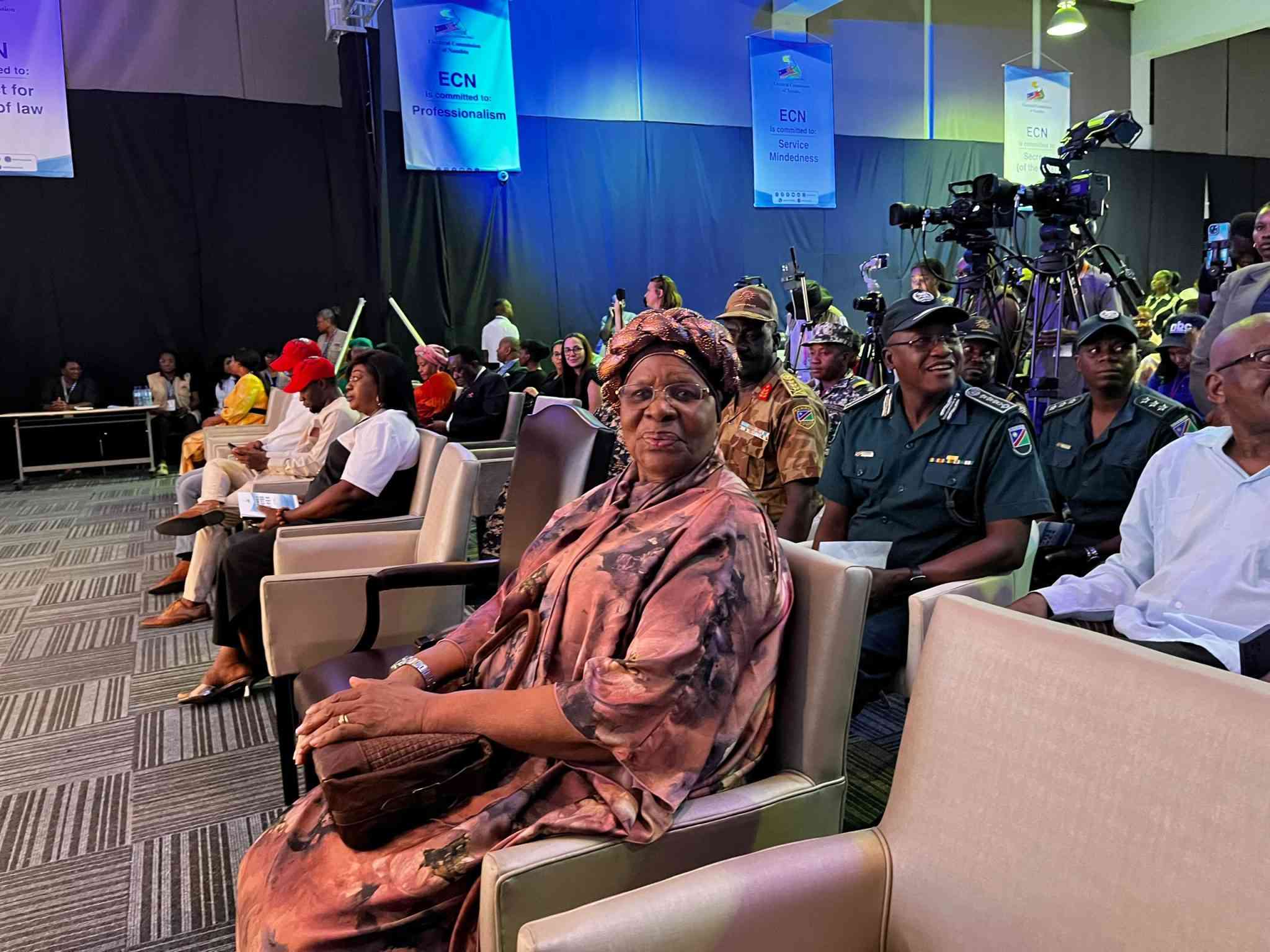
Swapo vice president Netumbo Nandi-Ndaitwah has been elected as Namibia’s fifth president, making history as the country’s first woman to hold this position.
She won with 638 560 votes, followed by Independent Patriots for Change (IPC) leader Panduleni Itula with 284 186 votes.
This was announced by the Electoral Commission of Namibia (ECN) chairperson of commissioners Elsie Nghikembua on Tuesday evening.
“In the presidential elections,15 candidates participated … by the powers vested in me as the chairperson of the ECN, [I] do hereby declare that Nandi-Ndaitwah has been duly elected the president of Namibia,” Nghikembua said.
Opposition leaders boycotted the announcement of the 2024 election results, excluding Affirmative Repositioning leader Job Amupanda.
The Landless People’s Movement and the Independent Patriots for Change confirmed on Tuesday evening they would not attend the announcement of results by the ECN.
Opposition parties are preparing to challenge the results in court, citing a lack of transparency, recurrent technical problems and potential voter disenfranchisement among their complaints.
WHO IS NANDI-NDAITWAH?
- Nandi-Ndaitwah elected as Namibia’s first woman president
- Zesn, observers flag irregularities in Namibia’s elections
Keep Reading
Ndemupelila Netumbo Nandi-Ndaitwah was born on 29 October 1952 to Justina Nekoto Shaduka-Nandi and Petrus Nandi at Onamutai in northern Namibia.
She was the ninth of 13 children.
Her father was an Anglican clergyman, and she attended the well-known St Mary’s Mission School at Odibo. She later taught at the school, before going into exile.
“Growing up, political activities were also not very far from me,” she told the Swapo Today newsletter last year.
“I could see Swapo activities being organised by the likes of Kaxumba Kandola. They would come near our house to hold meetings because there were big trees for shade,” she said.
After independence, she steadily climbed the ranks of the government. She claimed victories with greater legal protections for women and children, and earned accolades for her environmental work.
Before Swapo’s congress, members keep their cards close to their chests.
Even so, current minister of environment, forestry and tourism Pohamba Shifeta describes Nandi-Ndaitwah as someone who provides leadership.
“She is fair in her approach to dealing with matters,” he says.
Her ascent was far from assured.
After the 2012 Swapo congress, Nandi-Ndaitwah seemed poised to become Namibia’s first woman vice president – part of a deal brokered to win Pohamba Shifeta’s support for Geingob’s presidency.
When Geingob reneged, her supporters rallied and pushed Geingob to combine the deputy prime minister and international relations portfolios.
Nandi-Ndaitwah was notably absent when Geingob announced his first Cabinet – feeding speculation she was planning to snub him if he were to appoint her as deputy prime minister only.
LEGITIMACY
Political scientist Rui Tyitende questions whether Nandi-Ndaitwah would be a legitimate president in the eyes of the many Namibians who were unable to vote, and those who believe the process was not free and fair.
“If she was a leader, knowing what has transpired before the elections, she could have made a statement to say ‘look, despite the fact that I would want to be president of this country, despite the fact that I would want to be the first woman president of this country to inspire young girls and young women, I would have wanted it to be done within the confines of the law’,” he says.
Tyitende says not all Namibians who were unable to vote across the country were given a second opportunity to do so, whether the extended election was legal or not.
“In other words, no voter who wanted to cast their vote on 27 November should have been turned away on account of the incompetence and ill-preparedness of the ECN.
“Therefore, is it possible to restart this process, or serious reforms need to take place,” he says.
Tyitende says legitimacy is essential in politics.
“You do not want to address the Namibian public, especially those who did not vote for you, and they think of you as being illegitimate. We do not want to be the next Zimbabwe,” he says.










